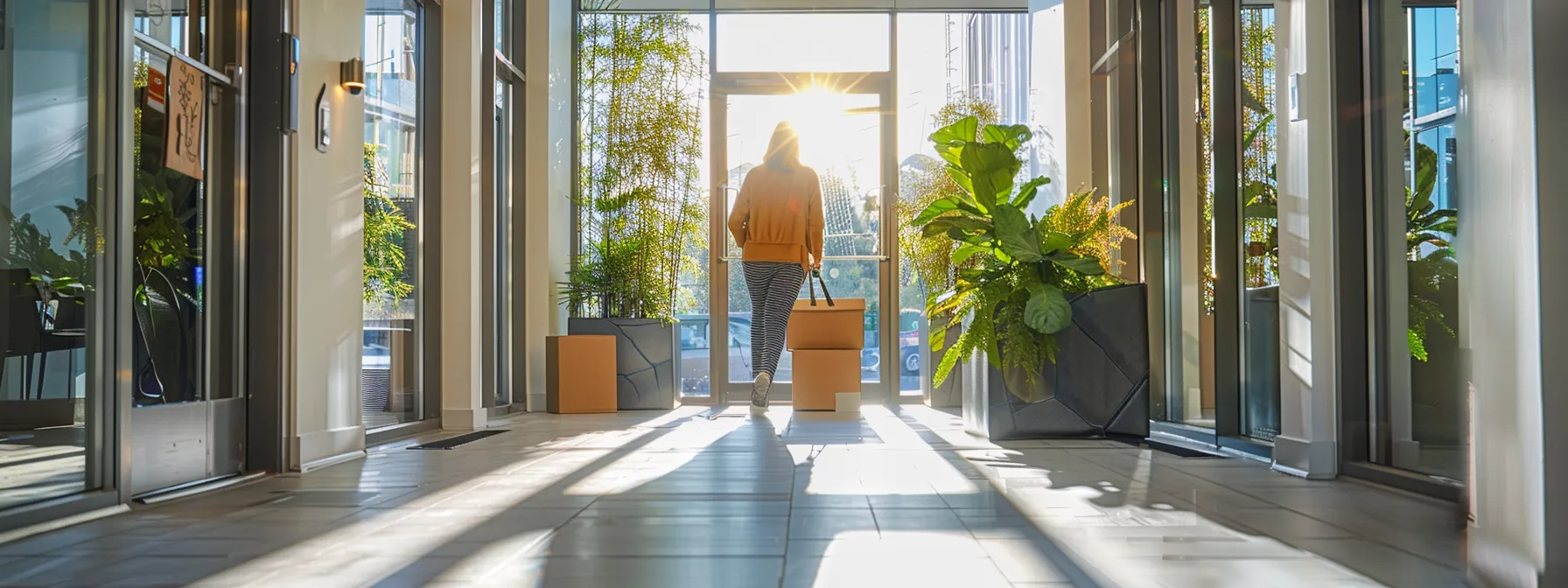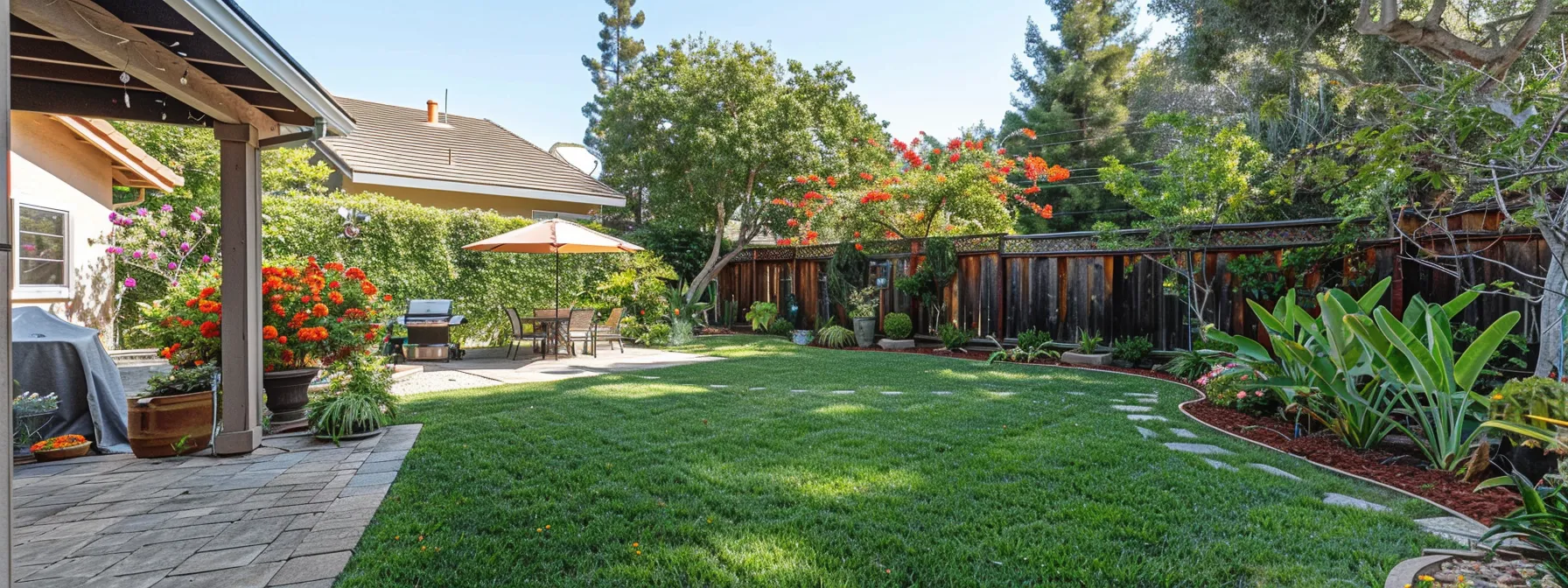Are you torn between leasing and buying a house? Leasing offers key advantages that might surprise you. This article explores the financial flexibility of leasing, lower upfront costs, and reduced maintenance responsibilities. You’ll learn how leasing can help you manage inflation, avoid long-term debt, and sidestep hefty security deposits. Discover how leasing allows you to adapt to changing interest rates and maintain a flexible budget while accessing desirable locations and amenities.
Key Takeaways
- Leasing offers financial flexibility with lower upfront costs and no property tax obligations
- Renters avoid maintenance responsibilities and unexpected repair expenses, providing peace of mind
- Leasing allows access to desirable locations and amenities that may be unaffordable when buying
- Renting provides protection from real estate market volatility and negative equity risks
- Leasing offers greater mobility for career opportunities and lifestyle changes without long-term commitments
Understanding the Financial Flexibility of Leasing a Home

Leasing a home offers financial flexibility through various aspects. This section explores how monthly lease payments compare to mortgage costs, the impact on budgets and savings, differences between short-term and long-term financial commitments, and the advantages of leasing during economic uncertainty. Understanding these factors helps individuals make informed decisions about housing options without the long-term obligations of ownership, loans, and insurance.
Analyzing Monthly Expenses Versus Mortgage Payments
Leasing a home offers significant financial advantages when comparing monthly expenses to mortgage payments. Tenants typically avoid property tax obligations and costly maintenance responsibilities, which are factored into lease agreements. This arrangement allows individuals to allocate funds more flexibly, potentially facilitating asset accumulation or investment in other areas. For this reason, leasing can be a strategic financial decision, especially for those seeking to optimize their tax situation or maintain liquidity in uncertain economic times.
- Lower monthly expenses compared to mortgage payments
- No property tax obligations for tenants
- Reduced maintenance costs
- Increased financial flexibility for other investments
- Potential tax advantages through leasing
How Leasing Impacts Your Budget and Savings
Leasing a home significantly impacts budgets and savings by eliminating the need for a substantial down payment and reducing monthly expenses associated with home ownership. Without the burden of home insurance and property taxes, tenants can allocate more funds towards savings or investments. The flexible nature of a lease contract allows individuals to adapt their housing situation to changing financial circumstances, providing a level of financial agility that traditional home ownership often lacks.
Comparing Short-Term and Long-Term Financial Commitments
Leasing offers greater financial flexibility compared to owning property, particularly in terms of short-term versus long-term commitments. While owning a home requires a substantial upfront investment and long-term financial obligation, leasing allows individuals to maintain a favorable credit score without tying up significant funds in a single asset. This flexibility is especially beneficial for those who prioritize liquidity or anticipate changes in their financial situation. Additionally, leasing eliminates concerns about fluctuating interest rates and property values, providing a more predictable financial outlook:
| Aspect | Leasing | Owning |
|---|---|---|
| Initial Cost | Lower (security deposit) | Higher (down payment) |
| Monthly Payments | Predictable rent | Variable mortgage + expenses |
| Long-term Commitment | Flexible lease terms | Long-term mortgage |
| Asset Appreciation | No equity buildup | Potential property value increase |
| Financial Flexibility | High | Lower |
Taking Advantage of Leasing During Economic Uncertainty
Leasing during economic uncertainty provides financial flexibility and reduces risk. Tenants avoid tying up significant money in property during volatile markets, preserving credit and liquidity. This approach minimizes opportunity costs associated with home ownership, allowing individuals to allocate funds to potentially higher-yielding investments. While leasing doesn’t build equity, it offers protection against declining property values and provides the agility to adapt to changing economic conditions:
| Economic Factor | Impact on Leasing | Impact on Buying |
|---|---|---|
| Market Volatility | Limited exposure | Higher risk |
| Job Uncertainty | Easier relocation | Potential financial strain |
| Interest Rates | Not affected | Variable mortgage costs |
| Property Values | No depreciation risk | Potential equity loss |
Lower Upfront Costs and Reduced Financial Burden

Leasing a house offers significant financial advantages over buying, primarily through lower upfront costs and reduced financial burdens. This section explores minimal down payments, savings on closing costs, avoidance of property taxes and homeowner’s insurance, and the ability to allocate funds toward other financial goals. These factors make renting an attractive option for those seeking financial flexibility without the long-term commitments of a mortgage or risks of foreclosure and maintenance expenses.
Minimal Down Payments Required When Leasing
Leasing a house requires significantly lower upfront costs compared to purchasing, with minimal down payments typically limited to a security deposit and first month’s rent. This reduced financial barrier allows individuals to enter desirable real estate markets without substantial savings or the need for extensive financing. Unlike buying, where large down payments and closing costs can strain finances, leasing offers flexibility in payment structures, enabling renters to allocate funds toward other financial goals or investments.
Saving on Closing Costs and Associated Fees
Leasing a home eliminates the substantial closing costs associated with buying, including appraisal fees, title insurance, and mortgage origination fees. This reduction in upfront expenses allows individuals to retain more of their wealth for other financial goals. Additionally, renters avoid recurring homeowner expenses such as property taxes and homeowner association fees, which can significantly impact a homeowner’s standard deduction and overall financial stability.
Avoiding Property Taxes and Homeowner’s Insurance Expenses
Leasing a home provides significant cost savings by eliminating property taxes and homeowner’s insurance expenses. Landlords typically cover these costs, allowing tenants to avoid substantial annual expenses associated with homeownership. This arrangement proves particularly beneficial for those living in condominiums or areas with high property tax rates. Additionally, renters can redirect funds that would otherwise go towards roof repairs or other major maintenance costs, enhancing their financial flexibility:
- No property tax payments
- Homeowner’s insurance covered by landlord
- Avoidance of major repair costs (e.g., roof)
- Reduced financial burden in high-tax areas
- Increased savings potential for other financial goals
Allocating Funds Toward Other Financial Goals
Leasing a home allows individuals to allocate funds toward other financial goals due to lower upfront costs and reduced financial burdens. By avoiding large down payments and ongoing homeownership expenses, renters can invest in retirement accounts, build emergency funds, or pursue entrepreneurial ventures. This financial flexibility enables individuals to diversify their investments and potentially achieve higher returns compared to tying up capital in a single real estate asset:
- Increased investment in retirement accounts
- Building robust emergency funds
- Pursuing entrepreneurial opportunities
- Diversifying investment portfolios
- Potential for higher overall returns
Enjoying Greater Mobility and Flexibility in Living Arrangements

Leasing offers greater mobility and flexibility in living arrangements compared to buying a house. This section explores how leasing accommodates lifestyle changes, provides flexibility in lease terms, allows for living in different neighborhoods and cities, and supports career opportunities and relocations. These advantages make leasing an attractive option for those seeking adaptability in their housing situation.
How Leasing Accommodates Lifestyle Changes
Leasing accommodates lifestyle changes by offering flexibility in housing arrangements. Tenants can easily upgrade or downsize their living space as their needs evolve, whether due to family expansion, career changes, or retirement. This adaptability allows individuals to align their housing situation with their current life stage without the long-term commitment of homeownership, providing a practical solution for those experiencing frequent life transitions.
Flexibility in Lease Terms and Duration
Leasing offers significant flexibility in terms and duration, allowing tenants to tailor their housing commitments to their specific needs. Lease agreements can range from month-to-month arrangements to longer-term contracts, providing options for those seeking short-term housing or more extended stability. This adaptability enables individuals to respond quickly to changing circumstances, such as job relocations or family expansions, without the constraints of long-term property ownership.
The Freedom to Live in Different Neighborhoods and Cities
Leasing offers unparalleled freedom to explore diverse neighborhoods and cities without the long-term commitment of homeownership. Tenants can easily relocate to new areas, experiencing different cultures, amenities, and lifestyles. This flexibility allows individuals to adapt their living situation to changing preferences or career opportunities, fostering personal growth and expanding their horizons.
Supporting Career Opportunities and Relocations Through Leasing
Leasing supports career opportunities and relocations by providing flexibility in housing arrangements. Tenants can easily move to new cities or regions for job opportunities without the burden of selling a property or breaking long-term commitments. This adaptability allows professionals to pursue career advancements, accept temporary assignments, or explore emerging job markets without sacrificing their living situation. The ease of transitioning between leased properties aligns well with the modern, mobile workforce:
- Quick relocation for new job opportunities
- Ability to accept temporary assignments
- Exploration of emerging job markets
- Seamless transitions between cities or regions
- Reduced stress when considering career changes
Avoiding Maintenance Responsibilities and Repair Costs

Leasing a house offers significant advantages in avoiding maintenance responsibilities and repair costs. This section explores how landlords handle property upkeep, tenants avoid unexpected repair expenses, and renters enjoy a hassle-free living experience. It also highlights the peace of mind gained from not worrying about major repairs, making leasing an attractive option for those seeking a low-maintenance lifestyle.
Landlord Obligations for Property Upkeep
Landlords bear the primary responsibility for property upkeep when leasing a house. This obligation typically includes maintaining structural integrity, ensuring functional plumbing and electrical systems, and addressing major repairs promptly. Tenants benefit from this arrangement by avoiding the financial burden and time commitment associated with significant maintenance tasks, allowing them to focus on their personal and professional lives without the stress of property management.
Eliminating Unexpected Repair Expenses
Leasing a house eliminates unexpected repair expenses, providing tenants with financial predictability. Unlike homeowners who face sudden costs for major repairs, renters enjoy protection from these financial burdens. This arrangement allows individuals to budget more effectively, as they avoid the need to maintain emergency funds for unforeseen property issues.
Living Without the Hassle of Home Maintenance
Leasing a house provides tenants with a hassle-free living experience by eliminating the burden of home maintenance. Renters can enjoy their living space without worrying about time-consuming tasks such as lawn care, HVAC system upkeep, or appliance repairs. This arrangement allows individuals to focus on their personal and professional lives, saving valuable time and energy that would otherwise be spent on property maintenance.
Gaining Peace of Mind Regarding Major Repairs
Leasing a house provides significant peace of mind regarding major repairs. Tenants avoid the stress and financial burden of unexpected, costly fixes such as roof replacements, HVAC system overhauls, or foundation repairs. This security allows renters to focus on their daily lives without worrying about substantial property maintenance issues, contributing to a more relaxed and financially stable living situation:
| Repair Type | Homeowner Responsibility | Tenant Responsibility |
|---|---|---|
| Roof Replacement | Full cost and arrangement | None |
| HVAC System Failure | Full cost and arrangement | None |
| Foundation Issues | Full cost and arrangement | None |
| Plumbing Emergencies | Full cost and arrangement | Report to landlord |
Accessing Amenities and Locations That Might Be Out of Reach When Buying

Leasing offers access to desirable locations and amenities that may be unaffordable when buying. This section explores how renting enables living in prime areas without high ownership costs, enjoying included amenities, accessing diverse housing options within budget, and benefiting from luxury communities. These advantages make leasing an attractive alternative to buying for those seeking premium living experiences.
Residing in Prime Locations Without High Ownership Costs
Leasing allows individuals to reside in prime locations without incurring high ownership costs. Renters can access desirable neighborhoods, city centers, and sought-after communities that might otherwise be financially out of reach when purchasing property. This arrangement enables tenants to enjoy the benefits of living in premium areas, such as proximity to cultural attractions, top-rated schools, and employment hubs, while avoiding the substantial down payments and property taxes associated with homeownership in these locations:
| Location Feature | Leasing Advantage | Buying Disadvantage |
|---|---|---|
| City Center | Lower monthly cost | High property prices |
| Trendy Neighborhoods | No property tax burden | Expensive down payments |
| Near Cultural Attractions | Flexible living arrangements | Long-term financial commitment |
| Top School Districts | Access without ownership costs | High-priced real estate market |
Enjoying Amenities Included With Rent
Leasing often includes access to premium amenities that would be costly to install or maintain when buying a home. Many rental properties offer gyms, pools, communal spaces, and even concierge services as part of the monthly rent. This arrangement allows tenants to enjoy a higher standard of living without the significant upfront costs or ongoing maintenance expenses associated with owning such facilities.
Accessing a Variety of Housing Options Within Your Budget
Leasing provides access to a diverse range of housing options within budget constraints. Renters can choose from apartments, townhouses, single-family homes, or even luxury properties without the substantial financial commitment of purchasing. This flexibility allows individuals to select accommodations that best suit their current lifestyle, family size, and preferences, while maintaining financial stability:
- Variety of property types available
- Ability to adjust living space based on changing needs
- Options for different price ranges and locations
- Opportunity to experience various housing styles
- Flexibility to upgrade or downsize as financial situations change
Benefiting From Leasing in Luxury Communities
Leasing in luxury communities offers tenants access to high-end amenities and exclusive locations without the substantial financial commitment of purchasing property. Renters can enjoy premium features such as concierge services, state-of-the-art fitness centers, and resort-style pools, which would be costly to maintain as a homeowner. This arrangement allows individuals to experience a luxurious lifestyle while maintaining financial flexibility and avoiding the long-term obligations associated with owning high-value real estate:
| Luxury Amenity | Leasing Benefit | Ownership Challenge |
|---|---|---|
| Concierge Services | Included in rent | Additional ongoing expense |
| High-end Fitness Center | Free access | Costly to install and maintain |
| Resort-style Pool | No maintenance responsibility | Significant upkeep costs |
| Exclusive Location | Lower monthly costs | High property values and taxes |
Mitigating Market Risk and Avoiding Property Value Fluctuations

Leasing a house offers protection from real estate market volatility and property value fluctuations. This section explores how renting shields individuals from market downturns, eliminates negative equity risks, removes concerns about resale value, and allows focus on financial stability rather than market trends. These advantages make leasing an attractive option for those seeking housing security without market-related stresses.
Shielding Yourself From Real Estate Market Downturns
Leasing a house provides a shield against real estate market downturns, offering tenants stability in uncertain economic times. Renters avoid the risk of property value depreciation, which can significantly impact homeowners during market slumps. This protection allows individuals to maintain financial security without worrying about potential losses in home equity or the challenges of selling a property in a depressed market.
Avoiding the Risk of Negative Equity in Home Ownership
Leasing a house eliminates the risk of negative equity, a significant concern for homeowners during market downturns. Negative equity occurs when a property’s value falls below the outstanding mortgage balance, potentially trapping owners in their homes or forcing them to sell at a loss. By renting, individuals avoid this financial predicament, maintaining flexibility to relocate without the burden of an underwater mortgage. This advantage becomes particularly valuable in volatile real estate markets or during economic recessions:
| Scenario | Homeowner Impact | Renter Impact |
|---|---|---|
| Market Downturn | Potential negative equity | No impact on finances |
| Relocation Needed | Difficulty selling at a loss | Easy move with no equity concerns |
| Economic Recession | Risk of foreclosure | Flexibility to adjust living situation |
| Property Value Drop | Reduced net worth | No change in financial position |
Freedom From Concerns About Property Resale Value
Leasing a house liberates individuals from concerns about property resale value, a significant advantage over homeownership. Renters need not worry about market fluctuations affecting their property’s worth or the potential challenges of selling in a down market. This freedom allows tenants to focus on their current living situation and financial goals without the stress of maintaining or improving a property to preserve its value for future sale:
- No anxiety over declining property values
- Freedom from costly home improvements to boost resale value
- Flexibility to move without worrying about market timing
- Avoid the pressure of selling in unfavorable market conditions
- Focus on personal financial goals rather than property value
Focusing on Financial Stability Instead of Market Trends
Leasing a house enables individuals to prioritize financial stability over unpredictable market trends. Renters can maintain a consistent budget without worrying about fluctuating property values or unexpected market downturns. This stability allows tenants to focus on long-term financial goals, such as building savings, investing in diverse assets, or pursuing career opportunities, rather than tying up significant capital in a single real estate asset. By avoiding the potential volatility of homeownership, lessees can create a more predictable financial future and adapt their housing situation to changing economic conditions without the constraints of property ownership.
Conclusion
Leasing a house offers significant financial flexibility, lower upfront costs, and reduced long-term commitments compared to buying. This option provides greater mobility, allowing individuals to adapt their living situations to changing career opportunities and lifestyle needs without the burden of property ownership. By eliminating maintenance responsibilities and mitigating market risks, leasing enables tenants to focus on financial stability and personal goals rather than property management and market fluctuations. Ultimately, leasing emerges as a compelling alternative to homeownership, providing access to desirable locations and amenities while offering a path to financial freedom and peace of mind.

